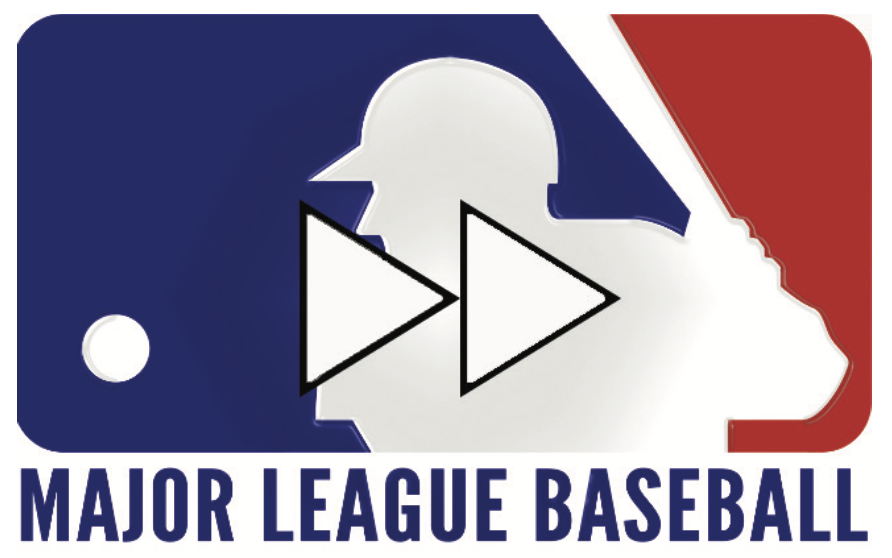MLB’s rule changes are necessary or ridiculous and there’s no middle ground
The new MLB rule changes for the 2017 season will attempt to shorten game times and attract younger fans.
March 28, 2017
Baseball season is finally here. After a five month break, the Cubs enter the 2017 season as the World Champions looking to defend their title and the White Sox enter as a rebuilding young team hoping to echo the success of their north side counterparts. The 2017 season will also see some rule changes, as announced jointly by MLB and the MLB Players Association, chiefly three new rules, with the first rule having multiple changes, clarifying the replay system and a controversial rule regarding intentional walks.
- Replay Rules
MLB originally instituted instant replay exclusively for home runs in 2008 before expanding its replay rules in 2014 to include numerous other plays. Since 2014, many fans have complained about the replay system in place, particularly the time spent waiting on the field for a review to be completed, the number of reviews late in the game and the time a manager waits before signaling for a replay.
These delay the game and take the focus away from the action while a manager waits on a dugout step for a signal that his video team has determined a review is optimal, followed by a long review process that averages two and a half minutes and, in the case of one Blue Jays-Athletics game, can take nearly 11 minutes.
Three new rule changes look to address each of those concerns. The first rule is a 30-second limit for a manager to request a replay review, effectively eliminating a manager’s option to wait until effectively eliminating a manager’s option to wait for assurance that the replay is approved before asking for it. The second rule is a change to Crew Chief review, which previously allowed the umpiring crew to invoke a replay at any time beginning at the seventh inning but now only allows these reviews beginning in the eighth inning, cutting down on late-game reviews. The third rule is a “conditional” two-minute guideline for officials to render a decision, cutting down on the lengthy review process and guaranteeing no more 11-minute review processes.
I have always thought replay review was a positive for the game of baseball and these new rules address most of the concerns that I had with the process. Cutting down on the time it takes to review is certainly a positive and MLB has been looking on ways to reduce the time of baseball games for years, hoping to draw in younger fans to the game. To that effect, they also introduced another, more controversial rule this year.
- The Intentional Walk Rule
Since 1889, four balls have been required in a plate appearance in order for a player to be issued a walk, or base on balls. The intentional walk predates the four-pitch walk, with records of it dating back to 1881, when eight balls were required for a walk. Beginning in 2017, pitchers will be able to intentionally walk a batter with zero pitches, requiring only a signal from the dugout.
The start of a no-pitch walk allows the defensive team’s manager to signal a decision to the home plate umpire in order to intentionally walk the batter. The umpire follows the signal of the manager’s intention and immediately awards the batter first base.
This is an entirely ridiculous rule change that has a net negative on the experience of a baseball game. First of all, the only positives are a minor increase in pace of play (assuming one minute per intentional walk, 932 intentional walks in the 2016 season over a total of 4856 games played results in a grand total of 11.5 seconds saved per game on average) and a minor decrease in number of pitches thrown by a pitcher, which would have an impact on his fatigue.
On the other hand, intentional walks have always carried some sort of risk, most notably in a few rare occurrences when a pitch ended up close enough to the plate for the batter to hit it (as Miguel Cabrera once did for a game-winning single) or the more common occurrence when the pitch goes wild and runners move forward.
Every pitch can be a mistake and by taking that pitch out of the pitcher’s hand, it eliminates an element of possible excitement out of the game in exchange for a 0.1% decrease in game time (11.5 seconds divided by the average game time of 3 hours and 24 seconds). It is a change for the sake of change and it eliminates a part of the game while gaining virtually nothing in return.
- Minor Rule Changes
MLB also announced some minor changes, including one stipulating the base coaches remain in their marked boxes, one prohibiting the use of any marker on the field that would create a reference system for fielders, and one outlawing the unorthodox delivery used primarily by San Diego Padres pitcher Carter Capps.







